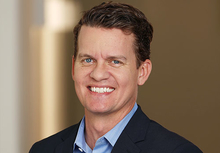DETROIT -- In a tucked-away corner of an empty restaurant, the familiar face emerges from the shadows, slipping into the room like a character from a John le Carré Russian spy novel. But it's not a spy, or a novel.

May 23, 2016 05:00 AM
Featured Stories
Tariffs dent North American auto output even as automakers weigh more U.S. production
Automakers are expected to produce fewer vehicles in North America because of tariff costs.
Latest News
Staying current is easy with newsletters delivered straight to your inbox.
See More in Newsletters
Staying current is easy with newsletters delivered straight to your inbox.








